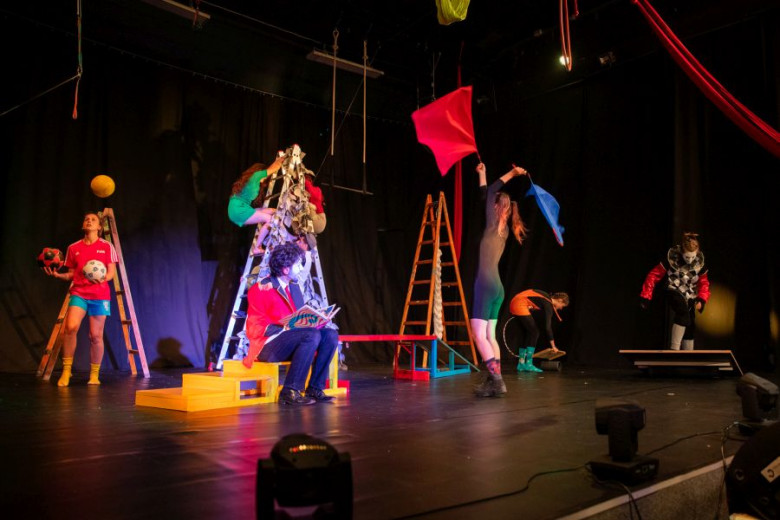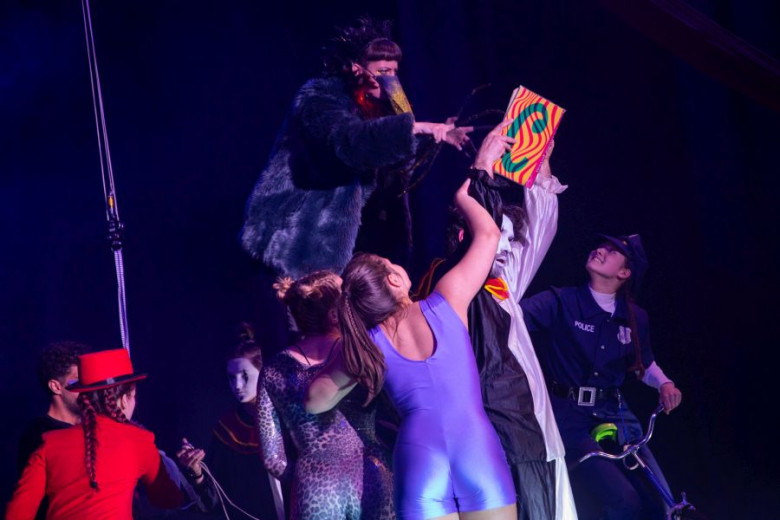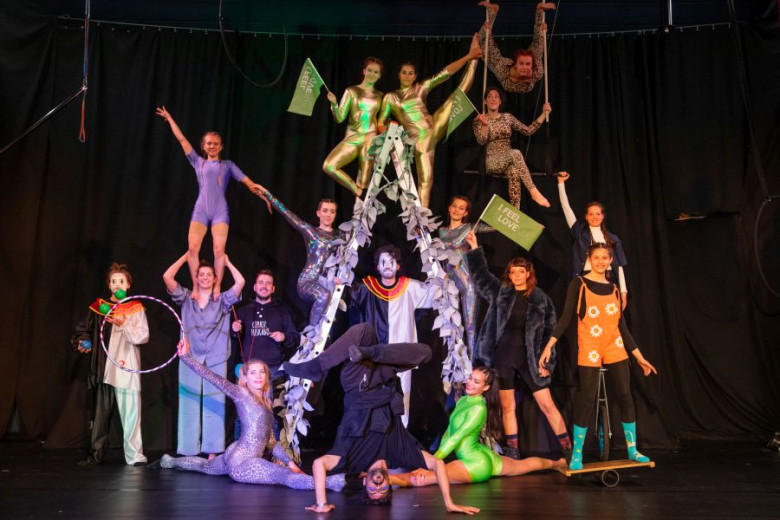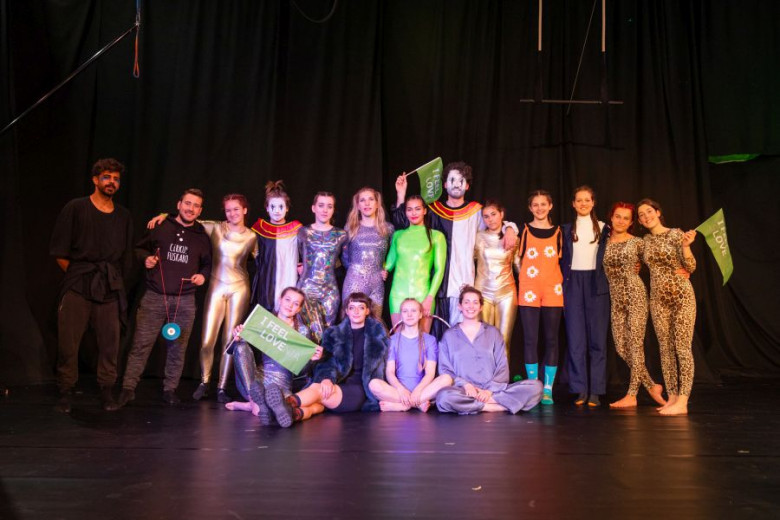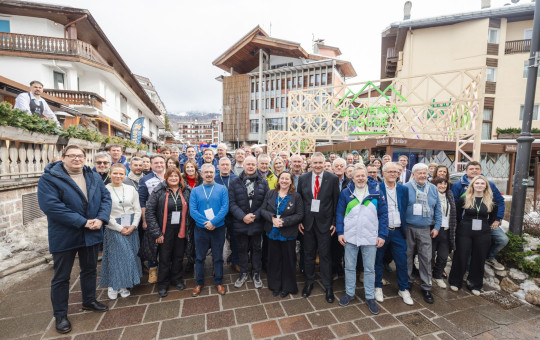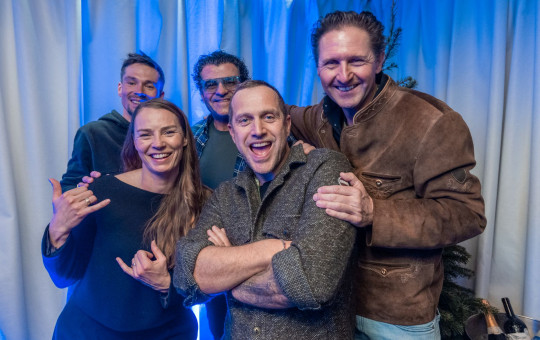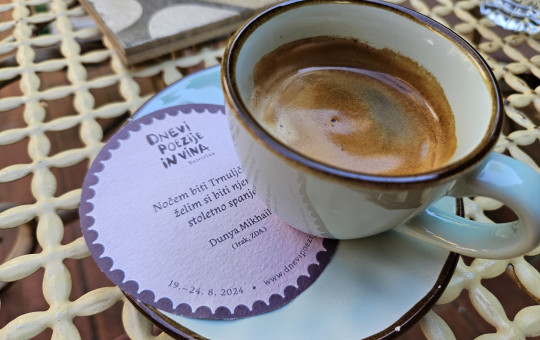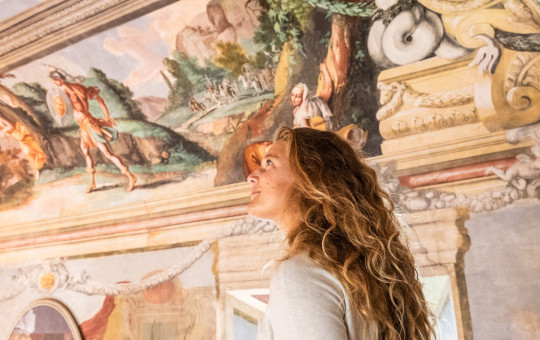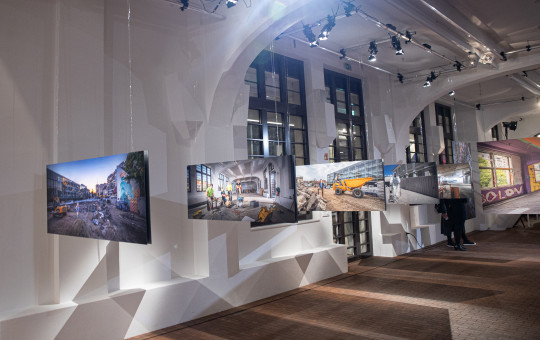Date: 1. September 2022
Time to read: 3 min
Nowadays, children spend a lot of their time on the computer, on the phone, in front of the TV, but do not play enough with their peers outside. For some of them, this is because they are not interested in more creative challenges, and others because their parents cannot afford to include them in music schools, sports activities, creative workshops and the like. And so, the story of Circus Fuskabo begins.
Skala, a centre of opportunities for children and youth, undertook circus activities after hosting the Parada circus group from Bucharest in 2011. The charity project »Circus for a better tomorrow« was hosted in various parts of Slovenia to promote the social circus and obtain funds for further street work in Romania.
Following a similar principle, the centre for children and youth launched activities for youth from problematic families with negative patterns. They organised circus workshops within the »Minibus of Joy« field programme.
Discovering and developing the creative potential of all children
Circus is not just a form of art but a way of life. Diversity and differences are two essential characteristics of the circus. Any dream is welcome. The art of the circus provides youth aged between five and 30 with countless options to develop their creativity while stimulating personal growth. Circus Fuskabo makes its activities available to anyone, including children from socially disadvantaged backgrounds. They take small steps to produce a magnificent performance.
Circus Fuskabo does not rely on the perfect coordination of circus figures but places the emphasis on cooperation.
At the circus, young people juggle, perform diabolo tricks, balance exercises and aerial acrobatics, perform on the trapeze, dance on silks, lyre and ropes, perform poi exercises, show hula hoop and levistick skills, perform partner acrobatics, etc.
Zef Berišaj, the circus manager, says: »All the time, with every ball that falls, with every descent from the globe, with every failed move, we learn that mistakes are part of progress. That persistence in repeating and correcting mistakes is what really counts. Many mistakes and persistent work lead to personal progress and mastery of a skill. Persistence is a skill many of us, particularly children and adolescents, lack while living on the fast lane.«
He also points out the value of cooperation on the path to success: »Exercise elements don’t mean anything in themselves. The magical power of a circus performance only comes to life when members creatively bring them together in sets of coordinated figures, in unusual interactions with the figures of the participants.«
Some young people spend all day at the circus if they feel safer there.
No one chases them away. They can even do their school homework there.
In addition to the circus manager, Zef Berišajski, trainers and animators are secondary school and university students.
-
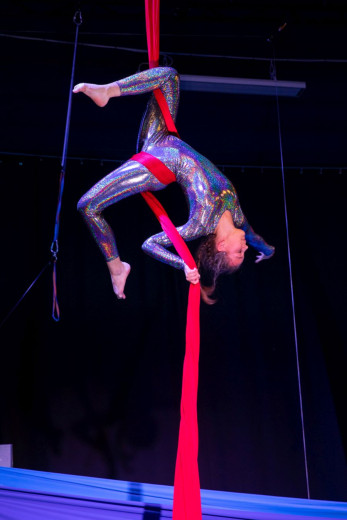 Circus acrobatics present a challenge to young people and teach them cooperation, patience, acceptance of differences, and enable them to learn about new environments. Photo: UKOM
Circus acrobatics present a challenge to young people and teach them cooperation, patience, acceptance of differences, and enable them to learn about new environments. Photo: UKOM
-
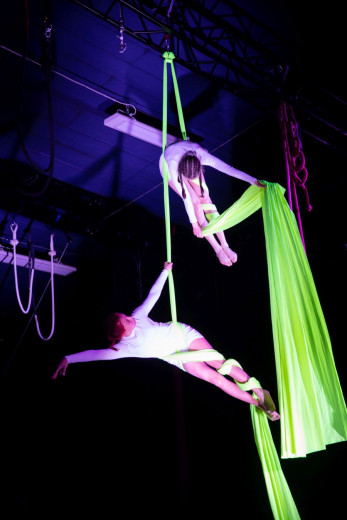 Circus Fuskabo is not only a magical world of acrobatics, flying balls, glittering costumes, but above all a venue for inclusion and cooperation. Photo: UKOM
Circus Fuskabo is not only a magical world of acrobatics, flying balls, glittering costumes, but above all a venue for inclusion and cooperation. Photo: UKOM
-
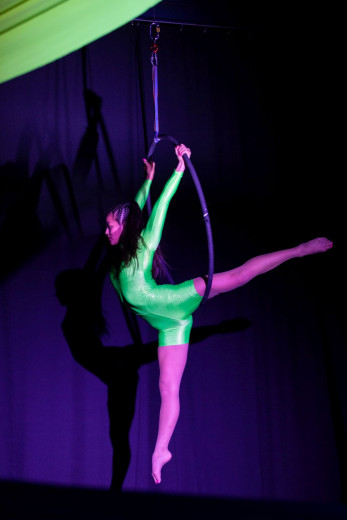 A circus acrobat. Photo: UKOM
A circus acrobat. Photo: UKOM
Circus as a place where diversity is accepted
Circus Fuskabo became an associated member of the CARAVAN youth and social circus network in 2013 and a full member in 2021.
They actively participate in the network through research, training and exchanges, obtaining experience from other European circus schools operating in this field.
The art of the circus as a tool for social inclusion is an effective means to educate young people who have fewer opportunities. The Caravan network has been carrying out research on social circus since 2009. It is co-financed by the European Commission. The Caravan partners, including Circus Fuskabo, provide international training in social circus, intended for trainers with basic knowledge of circus skills, who wish to obtain enhanced circus skills to prepare and conduct social circus training. They include most Slovenian trainers and trainers from other countries who come on exchanges.
This year, training is organised in Finland, Ireland and Italy, while Slovenia hosted the training last year.
In the next three years (programme until 2025), Circus Fuskabo will focus on six key programme areas: social circus, youth circus school, the promotion and expansion of the work method outside of the working environment of Ljubljana, active participation in international projects and research, development programme for trainers and assistant trainers, the creation of a group for circus productions.
Young artists from various circuses come on exchanges. Circus Fuskabo has been successfully participating in the project »Assistant trainers sharing knowledge«, aimed to design a curriculum for young trainers.
The Slovenian social circus has also been participating in a two-year Erasmus+ project, the aim of which is to plan and design a training module on the circus as a cultural meeting.
Bubbly and intrepid youth
Members and developing their potentials and ideas are at the centre of the circus programme.
Riding a monocycle, performing dizzying circus acrobatics, tightrope walking, juggling, dancing … the circus is always playful, colourful and attractive.
The most successful circus productions include Circus Land, Magical Forest and Good Night. Circus Fuskabo has performed these at many major events, including during the European Year of Youth 2022 project.
Circus Fuskabo is also the ambassador of the I Feel Slovenia brand, as it fosters the values that distinguish this brand: healthy, creative, special and unique.
This year, the Circus takes part in partnership with the Government Communication Office, the Volleyball Federation of Slovenia in preparation for the 2022 Volleyball Men's World Championship to be hosted in Slovenia and Poland, and the Faculty of Sport as part of the same event.

